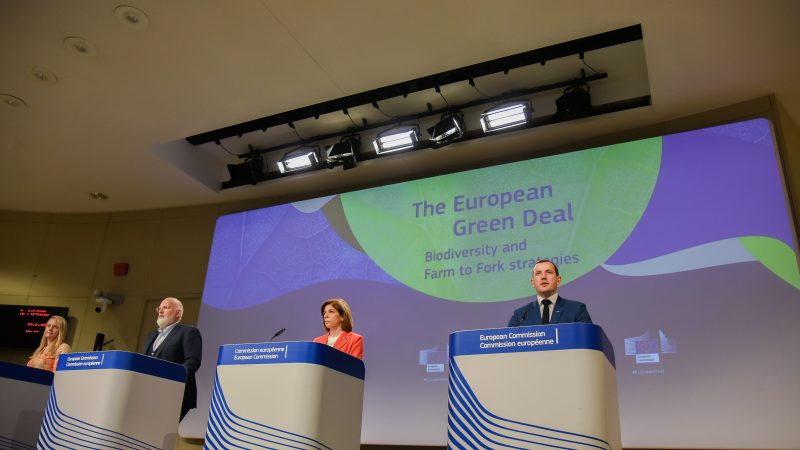
On May 20, the European Commission has presented its newer flagship food policy Farm to Fork (F2F), confirming the intention of further focusing on the sustainability of European food chains.
The F2F strategy is so far divided into 27 actions, organized by four macro areas: i) Sustainable Food production, ii) Sustainable Food processing and Distribution, iii) Sustainable Food Consumption, and iv) Food Loss & Waste Prevention. One can see the pattern, or rather, the “shape” of such conceptualization, as indeed the Commission is interested in promoting further action towards the circular economy.
The F2F is part of the upcoming Green Deal, which elaboration has been postponed due to the COVID-19 pandemic. Nonetheless, the European Commissioners at the head of the elaboration of the strategy, i.e. Frans Timmermans, Stella Kyriakides & Virginijus Sinkevičius, have already presented the main target of F2F, which will include the following changes within our food systems:
- 50% reduction of the use and risk of pesticides;
- At least 20% of the use of fertilisers;
- 50% reduction in sales of antimicrobials used for farmed animals and aquaculture;
- 25% of agricultural land under organic farming.
EU Health and Food Safety Commissioner Mrs. Kyriakides has commented: “Our targets are ambitious but they’re realistic, and they will be seen very carefully over the coming development of the strategy”. In an interview together with the movement Friday For Future on May 22nd, Frans Timmermans has instead casted the attention on how the current direct payments within the current CAP creation distortion in prices, farmers’ benefits, and agricultural production. Furthermore, he stated, most of the direct payments do not go to farmers, but to large landowners. Thus, changing the way our agricultural system funding works will benefit the struggling small, and diversified, agricultural producers.
We in the eTOMATO project, are very excited to see what the new shape of the CAP, and the contribution played by F2F, will be. It is crucial to set out the right basis for one of the most important sectors in Europe and worldwide, as it is surely considered a decisive asset in order to recover from the recession generated by the COVID-19 crisis.


